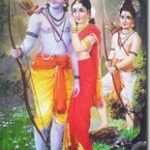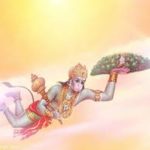The Changing Conception of God – from Fear to Philosophy
Since the early days, the man believed in the existence of God. However, the concept of God – why one needs a god or how god appears – had changed over time. The ancient man, living the nomadic life of a hunter-gatherer, sought the help of powerful forces (god) to protect him from the threats of wild animals and furious nature. The only powerful forces that he could perceive through his sense were the natural elements – earth, water, fire, wind and space. He prayed to these elements and appealed to them to protect him. Thus, fear appears to be man’s initial reason for belief in god.
Eventually, the man moved from hunting and gathering to agriculture. He started living as a member of a family and a community. This changed life-style, while diminishing his fears of wild animals and raging nature, ushered in new fears and anxieties. He realized for peace and harmony to prevail, a family and a community must adopt a framework of ethics, morals, and social norms. Otherwise, both the family and the community will breakdown. He was also aware that ethical and social norms would be effective only if they are embraced by everyone and when everyone recognizes their value and benefits. Man, needed a role-model who can not only demonstrate the values but also make his fellow-beings to embrace them. He needed a role-model who was superior to the ordinary mortal, god, but also faced moral and ethical dilemmas like an ordinary mortal. He, therefore, conceived his god, no longer in the image of natural elements but, in his own image. Using mythological stories, he attributed his anthropomorphic god with exemplary qualities of heroism, conduct, character, benevolence, and, even with occasional anger and fury. While his image of god had changed, man nevertheless continued to perceive god only within the confines of the phenomenal world of everyday experiences.
In later years, the saints and sages who expounded the Upanishads (post-Vedic age) disagreed with the notion that God is a separate being and, who, like the humans, is preoccupied with everyday issues of life. Instead, the sages emphasized that God is a force, a spirit, that resides within each being. This spirit or force cannot be discerned only through the senses; one can perceive this spirit only through direct experience (‘Darshana’). The direct experience ensues only when one looks inward and makes truth integral to one’s conduct, character, and consciousness. It also requires that one always focus the mind and the senses and discover that everything in this universe is inter-connected [1]. This discovery will show that the supreme force (‘Brahman’) one calls god is the same force that dwells within each being (Athman)]. That is, one realizes that God is the being and the being is the god (Tat Avam Asi – That Thou Art). At that juncture, one is – released from all desires, evils and fears.
[1] In the last few decades, quantum physicists, investigating sub-atomic particles, also recognize the presence of a unifying force that transcends both time and space. [2] Similar views are also expressed by other Hindu saints – Sri Adi Sankara, Sri Ramana Maharishi, and Sri Vivekananda.
2]. As Aldous Huxley says, that is the true conception of God and that is the essence of ‘perennial philosophy.’
Dr. Ram S. Sriram
vidyarthifoundation@gmail.com




Leave a Reply
You must be logged in to post a comment.